Milan is at the forefront of sustainability with its innovative zero-waste shops attracting both eco-conscious residents and visitors alike.
As environmental awareness grows, our actions as consumers have a powerful impact on the globe.
Zero-waste shops offer a tangible solution by minimizing packaging waste and encouraging the use of reusable containers.
We stroll through these stores, filling our bottles and jars with grains, spices, and more, all the while contributing to a larger movement towards a sustainable urban ecosystem.

Our commitment to the environment extends beyond shopping habits to food management practices that address the pressing issue of waste.
The city’s food waste policies have made significant strides in creating a more sustainable food system.
By recovering surplus food and delivering it to those in need, we’re actively participating in a network that supports both the community and our planet.
We’re not only shoppers but also members of a society that values recycling, reusability, and responsible consumption.
Zero waste shops in Milan
Key Takeaways
- Milan’s zero-waste shops exemplify a commitment to minimize our environmental impact.
- Sustainable food management practices in Milan repurpose surplus food, reducing waste.
- Through recycling and reuse, we support a thriving community and a healthier planet.
The Impact of Food Waste
In the heart of Milan, initiatives focused on sustainability are making strides, recognizing that minimizing food waste is crucial in our fight against climate change and its detrimental effects.
Understanding Food Waste
Food waste refers to food appropriate for human consumption being discarded or left to spoil, often unnecessarily.
This is not a negligible amount; in Milan’s Local Food Waste Hubs, over 400 tonnes of food have been recovered, demonstrating both the magnitude of potential waste and the impact of measures to curb it.
Our approach to zero waste is multifaceted, involving supermarkets, restaurants, and consumers, all aimed at ensuring that edible food does not end up in landfills.
Consequences for the Environment
When we consider the environmental impact of food waste, it’s clear that the consequences are significant:
- Greenhouse Gas Emissions: When organic waste like food decomposes in landfills, it emits methane, a potent greenhouse gas. Methane is known to be a major contributor to climate change, with a global warming potential approximately 28-36 times that of carbon dioxide over 100 years.
- Resource Misallocation: Large quantities of water, energy, and land go into producing food that might never be consumed. If reduced, the savings on these resources can be substantial and bolster efforts towards sustainability.
By tackling food waste through zero waste initiatives, we are not only creating a more efficient food system but also reducing our carbon footprint, crucial for mitigating the effects of climate change.
Milan’s Pioneering Efforts
Milan has made significant strides in promoting sustainable living, affirming itself as a leader in the zero-waste movement.
With a combination of municipal policies and community actions, the city demonstrates a firm commitment to reducing waste and fostering a culture of sustainability.
Zero-Waste Initiatives in Milan
Milan’s advance in zero-waste practices is most notably marked by the city’s Food Policy.
Pioneered to combat food waste, this policy is both progressive and effective, having set ambitious targets for waste reduction.
The Milan Urban Food Policy Pact, signed by more than 800 municipalities worldwide, is a testament to Milan’s dedication to shaping a sustainable future.
Through initiatives such as the food waste collection scheme, the city dramatically improved biowaste management.
Local players like Sogemi, the markets operator, and Milan’s branding firm, Armando Testa Group, have made waves in promoting sustainability.
The launch of Recup, a platform for reusable food containers, represents a practical response to the disposable culture, furthering waste reduction efforts.
Collaborations with Institutions and NGOs
The achievements of Milan’s zero-waste movement are amplified by its collaborations with various institutions and NGOs.
The Cariplo Foundation has played a pivotal role in financing sustainability projects.
Similarly, Banco Alimentare della Lombardia has been influential, joining forces with the Municipality of Milan to aid in food recovery and redistribution.
Milan’s efforts gained international recognition with the Earthshot Prize, spotlighting the city’s food waste hubs that have been nourishing thousands of families.
Contributions from organizations like IBVA Solidando and Number1 Logistics Group demonstrate the collaborative spirit powering Milan’s success.
Through the C40 Cities network, Milan aligns with other global cities to share knowledge and drive sustainable urban development, illustrating the widespread impact of its food policy.
Sustainable Urban Ecosystems
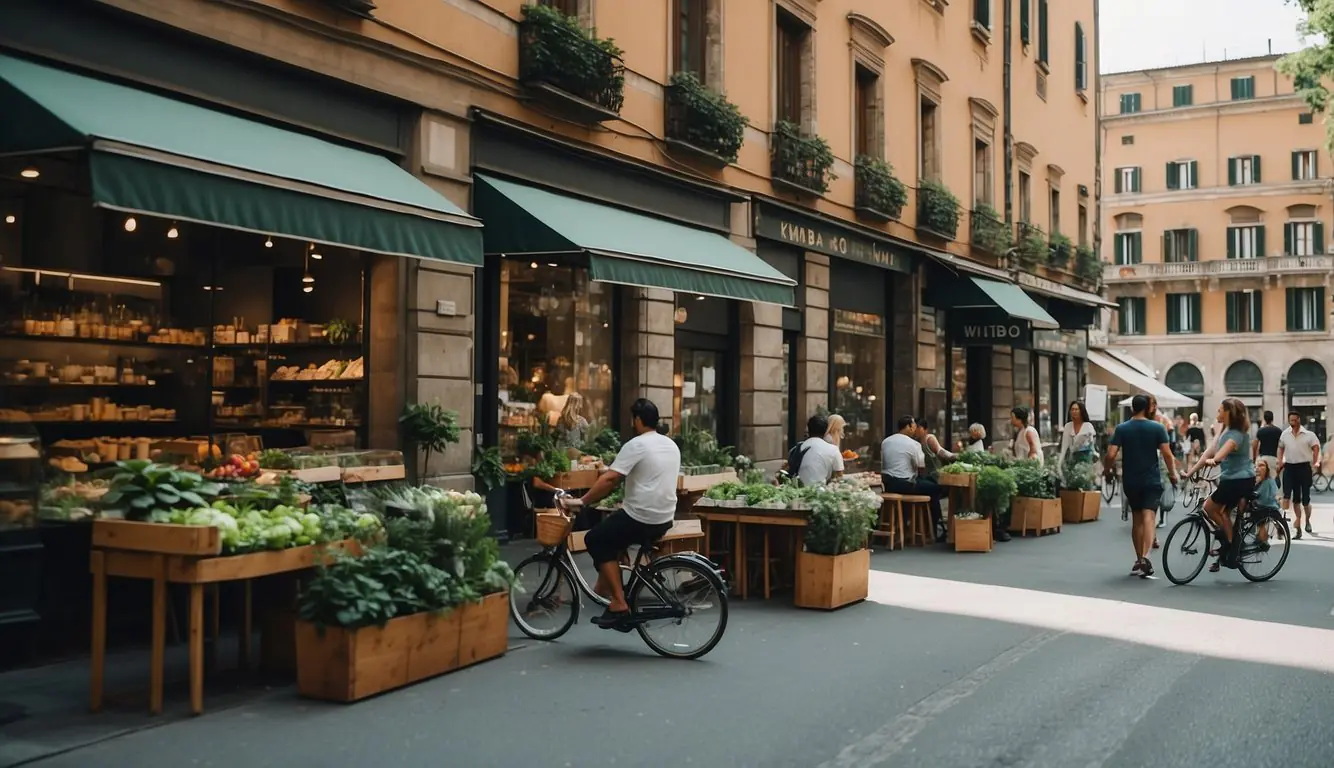
Milan’s commitment to sustainability showcases how we can turn the aspirations for a waste-free world into actionable strategies.
Our city stands at the forefront of an urban revolution that emphasizes circular economy principles and sustainable design.
Creating Eco-Friendly Cities
In our pursuit to create eco-friendly cities, we focus on integrating natural resources and energy efficiency into the urban fabric.
Milan has launched various initiatives to increase sustainable design practices.
Buildings and infrastructure now incorporate solar panels, mitigating greenhouse gas emissions.
Furthermore, biodegradable materials are becoming the norm in construction, reducing the city’s environmental footprint.
Public and Private Sector Partnerships
Partnerships between the public and private sectors are crucial for accelerating Milan’s transformation into a sustainable metropolis.
By collaborating, we can implement circular design concepts and promote the intelligent use of resources.
The Local Food Waste Hubs initiative in Milan exemplifies such a partnership, where retailers and the community come together to support a waste-free ecosystem that has nourished thousands of families.
Food Policy and Management
In Milan, we are witnessing significant strides towards sustainable living through comprehensive food policy and aggressive waste management strategies.
Revolutionizing Food Systems
We believe in transforming the way communities view and handle food.
With the implementation of Milan’s Food Waste Hubs, surplus food is methodically collected and redistributed, effectively minimizing waste and benefiting thousands of families.
Our Zero Waste philosophy prioritizes the efficient use of resources, and by embracing this, supermarkets in Milan have turned potential waste into a resource for those in need.
Efficient Logistics and Distribution
Our logistics approach focuses on efficiency and sustainability.
The Foody Zero Waste Hub has successfully orchestrated a system where over 400 tonnes of food have been recovered and redistributed.
The University of Milan simultaneously plays a critical role, backing research and education initiatives to refine our logistics and contribute to more educated policies.
Through these continuous efforts, we ensure that logistics are not only optimized for distribution but are also anchored in zero-waste principles.
Advancing Recycling and Reuse
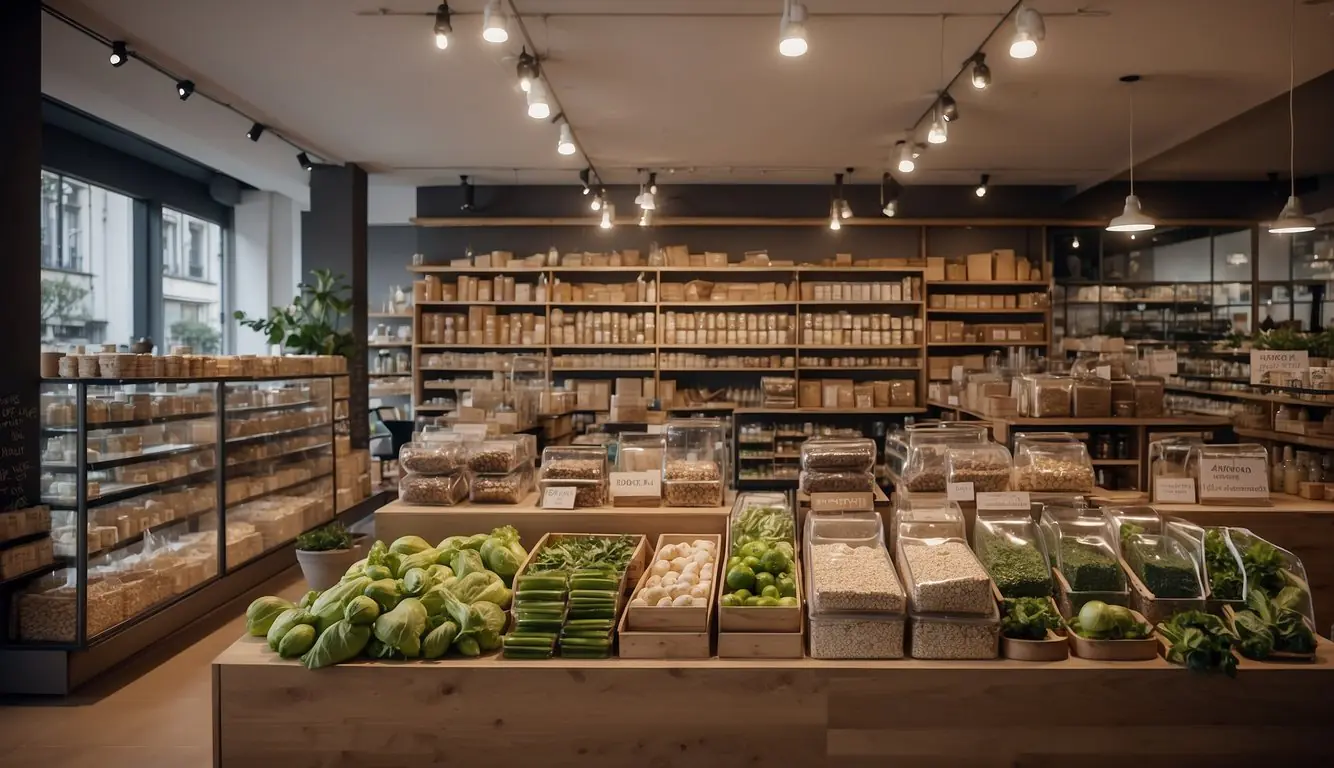
In Milan, we take the concepts of recycling and reuse beyond just simple waste management.
Our city is a beacon of innovation, showing the world how to transform waste into a valuable resource and embracing new technologies to push the boundaries of sustainability.
From Waste to Resource
We recognize that what is considered waste can often find a new life as a resource.
Our zero waste initiatives encourage the transformation of organics into compost, turning a problem into a product that benefits our urban green spaces.
At the forefront, Milan’s separate collection of biowaste has proven successful and serves as a stellar example of recycling efficacy in densely populated areas.
For instance, The Story of Milan details how the city began implementing an ambitious biowaste recycling scheme in 2011, demonstrating it’s possible to reduce food waste effectively, even in a metropolis.
Innovations in Recycling
Innovation is key in our journey towards a zero waste future.
Spazio META, a place for the reuse and resale of disused set designs and setups, fosters a circular economy.
We’re also embracing the potential of reuse with shops like La Sfuseria, which offer refill options to conscientious consumers looking to minimize packaging waste.
These are tangible steps that bolster our city’s sustainability efforts.
Engagement and Social Impact
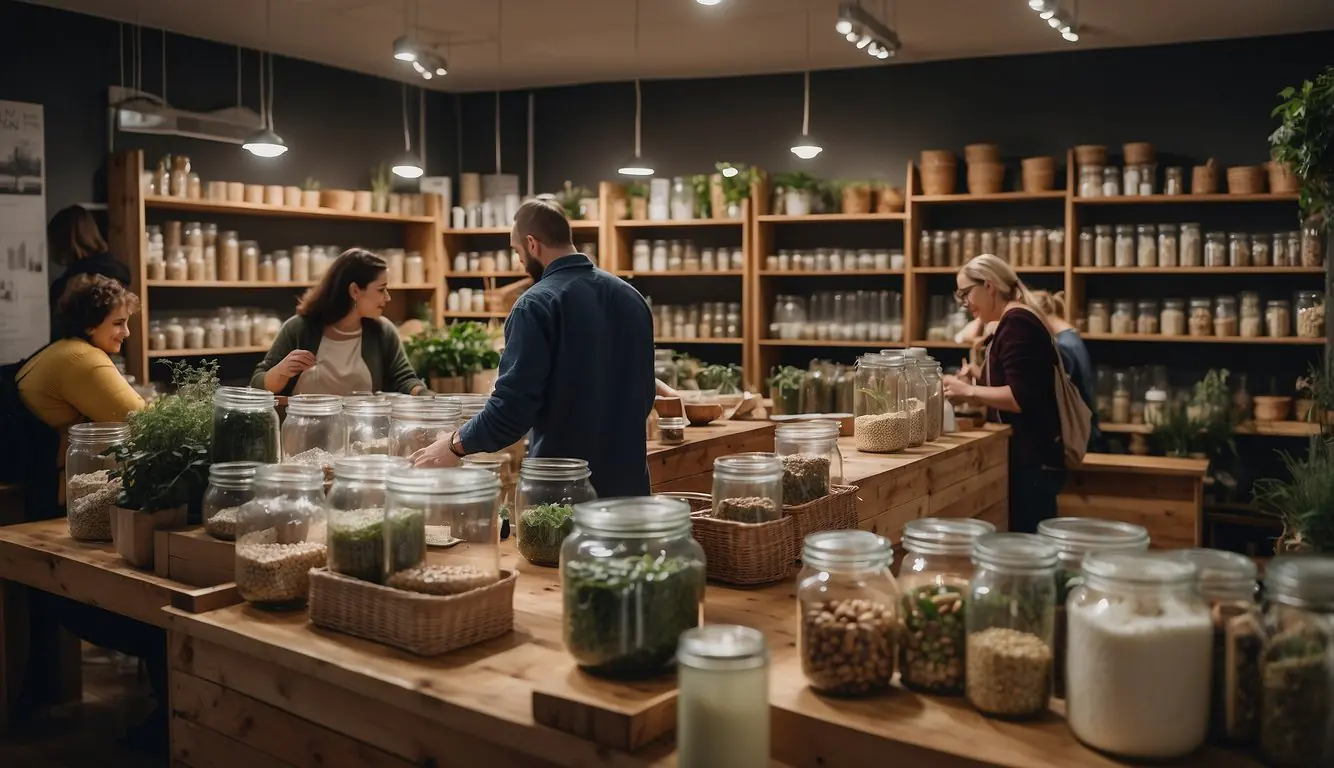
Our efforts to promote sustainability in Milan have a profound social impact, directly benefiting local communities and supporting families and individuals in need.
By leveraging resources such as supermarkets, retailers, and charities, we ensure that initiatives are inclusive and promote biodiversity.
Community Involvement
We, as the citizens of Milan, take pride in our active community involvement in zero waste initiatives.
The collaborative efforts between the Municipality of Milan, Assolombarda, and universities like the Milan Polytechnic catalyze progress toward our shared goal of a more sustainable city.
Our local supermarket brands have been instrumental in this journey, participating actively in food waste reduction programs that serve our community and protect our local biodiversity.
Supporting Families and Individuals
Our commitment to supporting families and individuals in Milan is steadfast.
We’ve witnessed firsthand the collaborative emergence of food waste hubs like the Foody Zero Waste Hub, which have been pivotal in redirecting over 400 tonnes of food to more than 3,500 families.
The Mayor of Milan has acknowledged the significant impact such initiatives have on creating a safe, nourished, and educated community.
These efforts align closely with local charities aimed at providing an all-encompassing support network.
Role of Fashion and Design
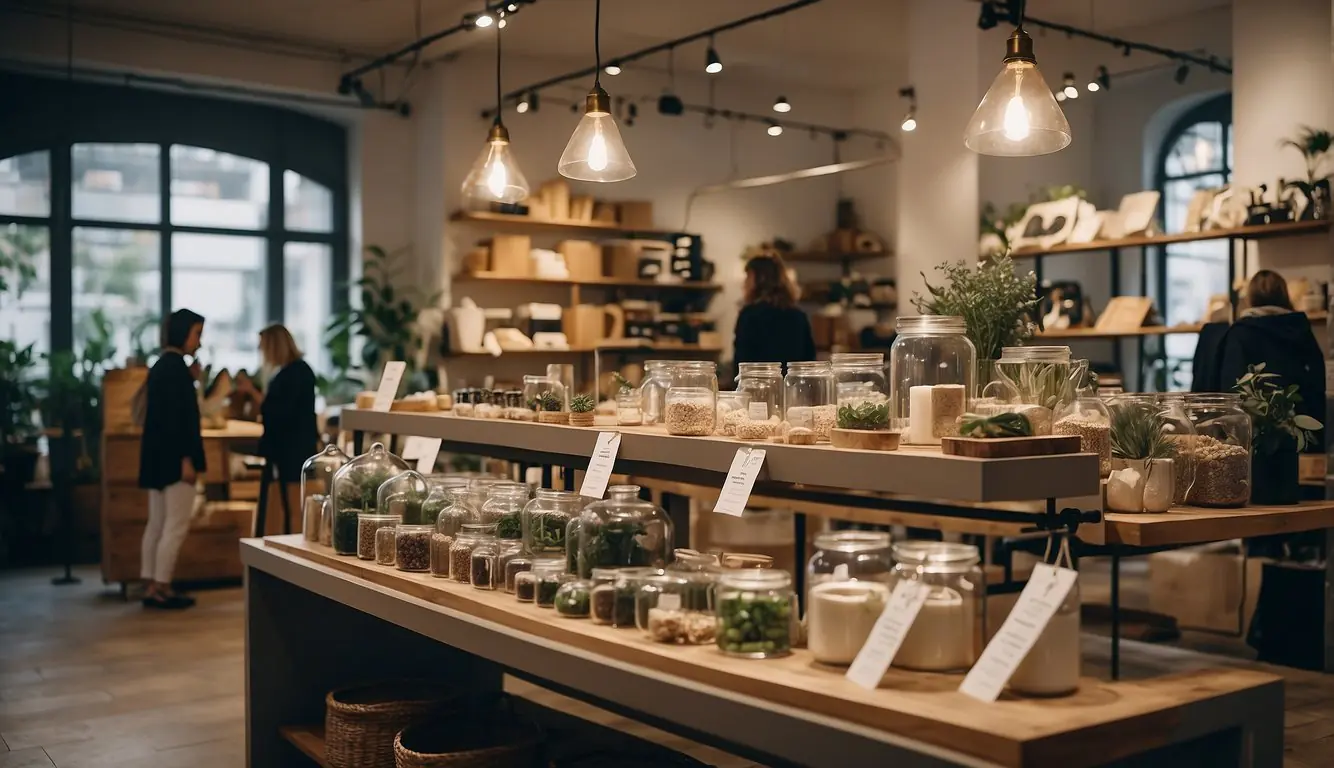
As the fashion capital of Italy, Milan plays a crucial role in setting trends not only for style but also for sustainability and responsible design, influencing how both industry sectors can harmonize to promote a more eco-friendly future.
Fashion as a Platform for Sustainability
Milan’s fashion scene has become a powerhouse not just for haute couture but also as a platform that amplifies the importance of sustainable practices.
Recognized events and showcases, such as those by Assolombarda, highlight how designers and brands are championing sustainable design, using their visibility to promote ethical manufacturing processes and responsible consumption.
Fashion, with its global audience, has the transformative power to influence societal norms, making it a pivotal force for advancing sustainability in Milan.
Designing for a Circular Economy
In Milan, the concept of a circular economy is being woven into the fabric of the city’s design ethos.
Areas like the Porta Nuova neighbourhood display a marriage of eco-conscious architecture and innovative fashion retail that strip away the old take-make-waste model.
Through thoughtful designing for a circular economy, the city’s creative minds emphasize the use of recycled materials and strive for a zero-waste approach that respects Milan’s rich history while guaranteeing its future.
Conclusion
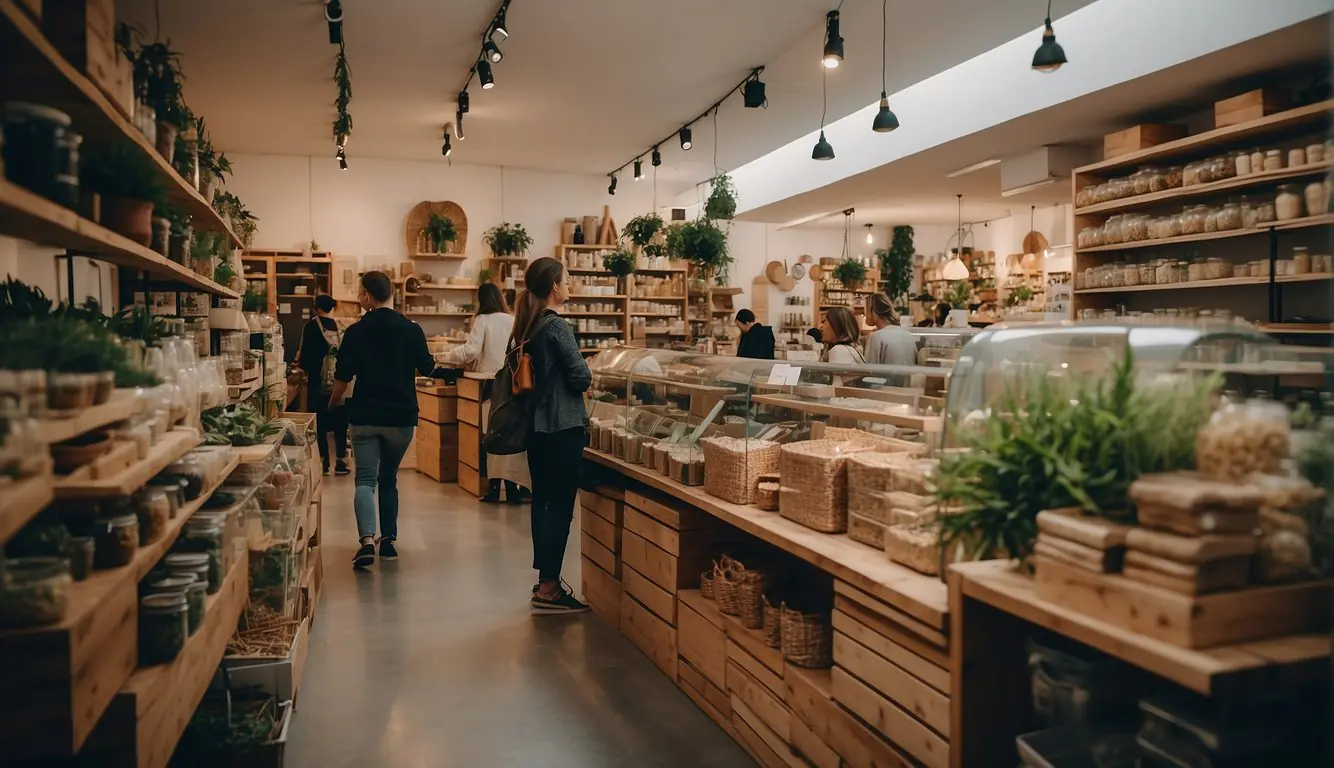
We’ve observed a remarkable transition as Milan has embraced zero waste practices and sustainable living with commendable determination and effectiveness.
The city’s stride towards a more environmentally conscious lifestyle is evident in the rise of zero waste shops, where consumers make eco-friendly choices every day.
These hubs not only foster waste reduction but also educate the community on the imperatives of sustainability.
In our journey to promote sustainability, it’s crucial that we support these initiatives.
By choosing to shop at such outlets, we directly contribute to the city’s goal to cut food waste and bolster the zero waste movement.
Milan’s success is not just a local win; it serves as an invaluable blueprint for cities worldwide, seeking to diminish their ecological footprint.
The collective effort in Milan is a robust testament to what can be accomplished with unified action and a clear vision of sustainability.
Let us continue to uphold these values and practices in our daily lives.
By doing so, we uphold not only the health of our lovely city but also the well-being of our planet.
Our choices and actions are powerful, capable of fostering change and inspiring others to join us on this crucial path to a sustainable future.
Frequently Asked Questions
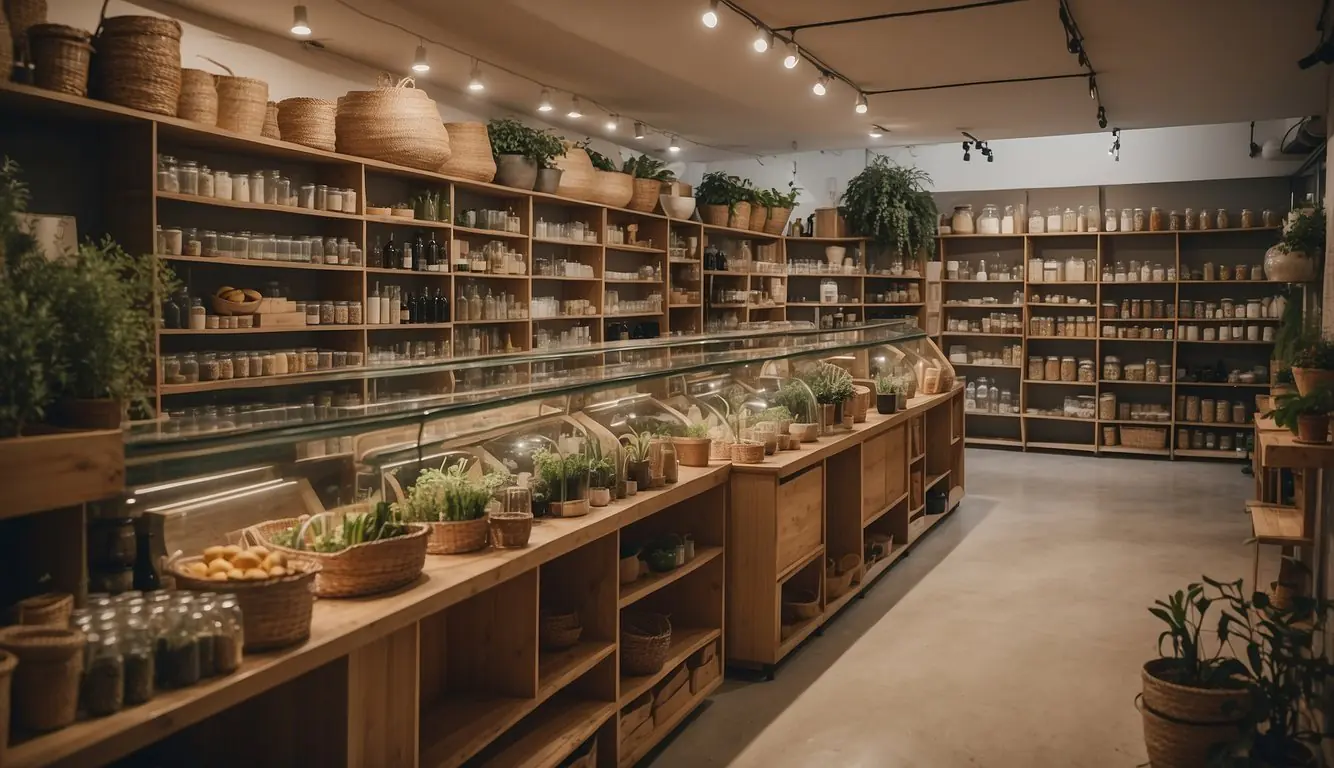
In this section, we’ll address common inquiries surrounding zero waste living in Milan, guiding you through eco-friendly shopping and sustainable living options across this Italian fashion capital.
What are some popular zero waste stores for grocery shopping in Milan?
Milan has embraced the zero waste movement with stores like NaturaSÌ, where customers can purchase organic groceries free from plastic packaging.
Another notable mention is Effecorta offering an array of bulk foods to promote waste-free shopping.
How can I find eco-friendly clothing options in Milan?
We can explore shops like Quagga that specialize in eco-sustainable fabrics and run on ethical business practices.
For vintage finds, Humana Vintage also offers second-hand clothing, reducing the need for new resources.
Are there any workshops or events about sustainable living in Milan?
Milan often hosts educational events on sustainability practices.
Keep an eye out for workshops at Cascina Cuccagna, an urban community center that frequently organizes events focused on environmental conservation and sustainable living techniques.
Can you recommend any sustainable homeware shops in Milan?
For homeware, Spazio Rossana Orlandi is renowned for its commitment to sustainability, showcasing furniture and home accessories designed with eco-friendly materials and production methods.
Where can I attend a zero waste living class in Milan?
Milan’s Food Waste Hubs offer classes and information sessions that teach us how to reduce our food waste footprint, an essential part of zero waste living.
What are some tips for reducing plastic use while shopping in Milan?
We can reduce plastic use by carrying reusable shopping bags.
We can also opt for products with minimal packaging and choose stores that allow for using our own containers, like the aforementioned NaturaSÌ and Effecorta.
It’s also beneficial to support markets and vendors that offer locally sourced products. These generally require less packaging and transportation.
